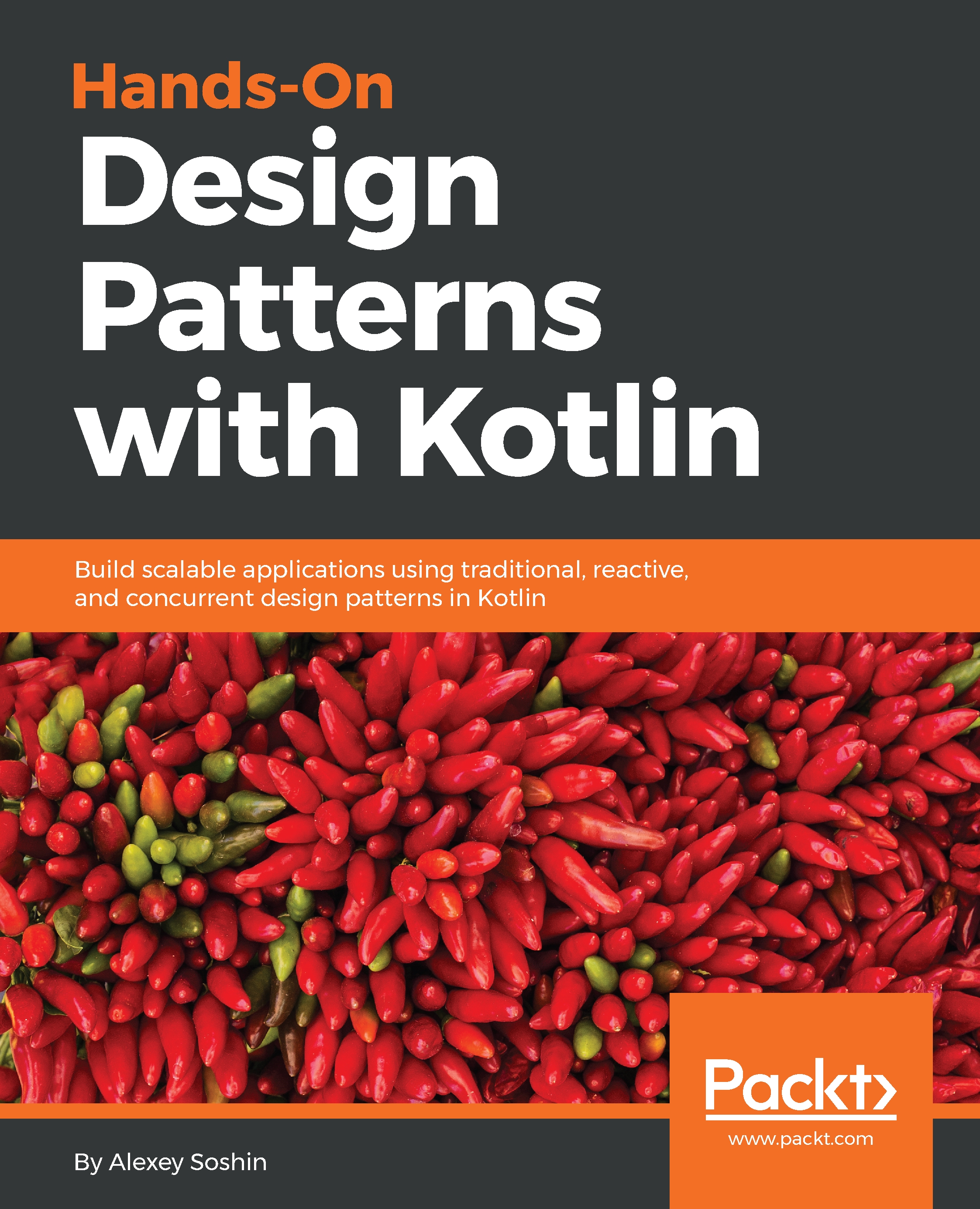We have already discussed apply() in previous chapters. It returns the same object it operates on and sets the context to this. The most useful case for this function is setting the fields of a mutable object.
Think of how many times you had to create a class with an empty constructor, then call a lot of setters, one after another:
class JamesBond {
lateinit var name: String
lateinit var movie: String
lateinit var alsoStarring: String
}
val agentJavaWay = JamesBond()
agentJavaWay.name = "Sean Connery"
agentJavaWay.movie = "Dr. No"
We can set only name and movie, but leave alsoStarring blank, like this:
val `007` = JamesBond().apply {
this.name = "Sean Connery"
this.movie = "Dr. No"
}
println(`007`.name)
Since the context is set to this, we can simplify it to the following nice syntax:
val `007` = JamesBond().apply {
name...


